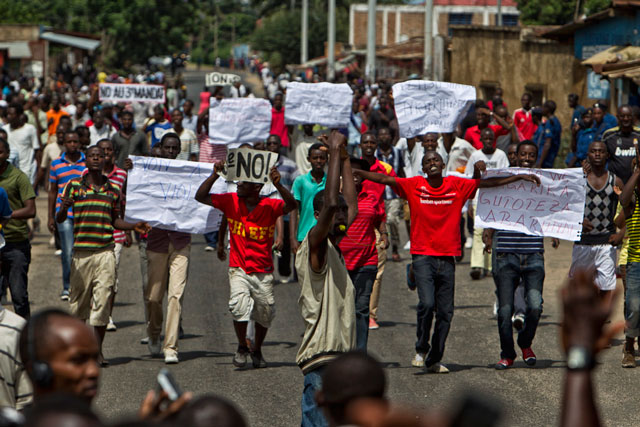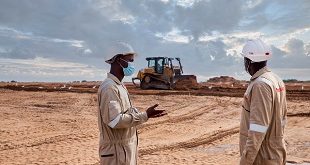
Bujumbura, Burundi | AFP | Burundi has since April 2015 been rocked by a deadly political crisis born of President Pierre Nkurunziza’s divisive bid for a third term, which he secured in July of that year.
Between 500 and 2,000 people have been killed in the violence, according to sources such as the United Nations and non-governmental organisations, and nearly 400,000 pushed into exile.
A UN report released on Monday accused Burundi’s government of crimes against humanity, including executions and torture, and urged the International Criminal Court (ICC) to open a case “as soon as possible”.
Here is a summary of key developments in the crisis engulfing the central African country.
– Demonstrations start –
April 25, 2015: Nkurunziza is declared candidate for a third term by his ruling CNDD-FDD party. The opposition says the move is unconstitutional and violates a peace deal that ended the 1993-2006 civil war.
The following day thousands of protesters take to the streets across the capital, kicking off six weeks of almost daily demonstrations.
– Failed coup –
May 13: Top Burundian general Godefroid Niyombare announces the overthrow of Nkurunziza hours after the president flies to Tanzania.
The coup attempt fails, with some leaders surrendering and others fleeing.
– Defections, re-election –
June 28: Outgoing parliament head Pie Ntavyohanyuma denounces the president’s “illegal” third term bid and says he has fled to Belgium.
He joins a long list of opposition leaders, journalists, civil society representatives and disillusioned ruling party members who have chosen exile.
July 21: Nkurunziza is re-elected in a vote boycotted by the opposition.
– Targeted attacks –
August 2: De facto internal security chief General Adolphe Nshimirimana is killed in a rocket attack.
August 3: Human rights activist Pierre-Claver Mbonimpa, who publicly opposed Nkurunziza’s bid for a third term, is wounded in gunfire.
August 15: Tutsi Colonel Jean Bikomagu, the former head of Burundi’s army during the 13-year civil war, is assassinated.
December 11: At least 87 people are killed in coordinated attacks by unidentified gunmen on three military sites that trigger a fierce riposte from the security forces.
– ‘Risk of genocide’ –
July 2016: The UN Security Council authorises the deployment of 228 UN policemen but Burundi rejects the resolution.
September 20: UN investigators say Burundi’s government is behind systematic human rights violations, including executions and torture, which amount to “crimes against humanity”. They warn of a risk of genocide.
October 27: Burundi decides to quite the ICC which has launched a preliminary examination into allegations of murder, torture, rape and forced disappearances.
– Move to ‘violent dictatorship’? –
December 30, 2016: Nkurunziza, hints he might seek a fourth term in office in 2020.
January 1, 2017: The environment minister is killed in Bujumbura.
January 3: Authorities ban the country’s oldest human rights organisation, the Iteka League.
January 19: Human Rights Watch says young men belonging to Burundi’s ruling party are waging brutal attacks on perceived opponents.
July 4: The International Federation of Human Rights says the regime is moving the country toward violent dictatorship.
 The Independent Uganda: You get the Truth we Pay the Price
The Independent Uganda: You get the Truth we Pay the Price


